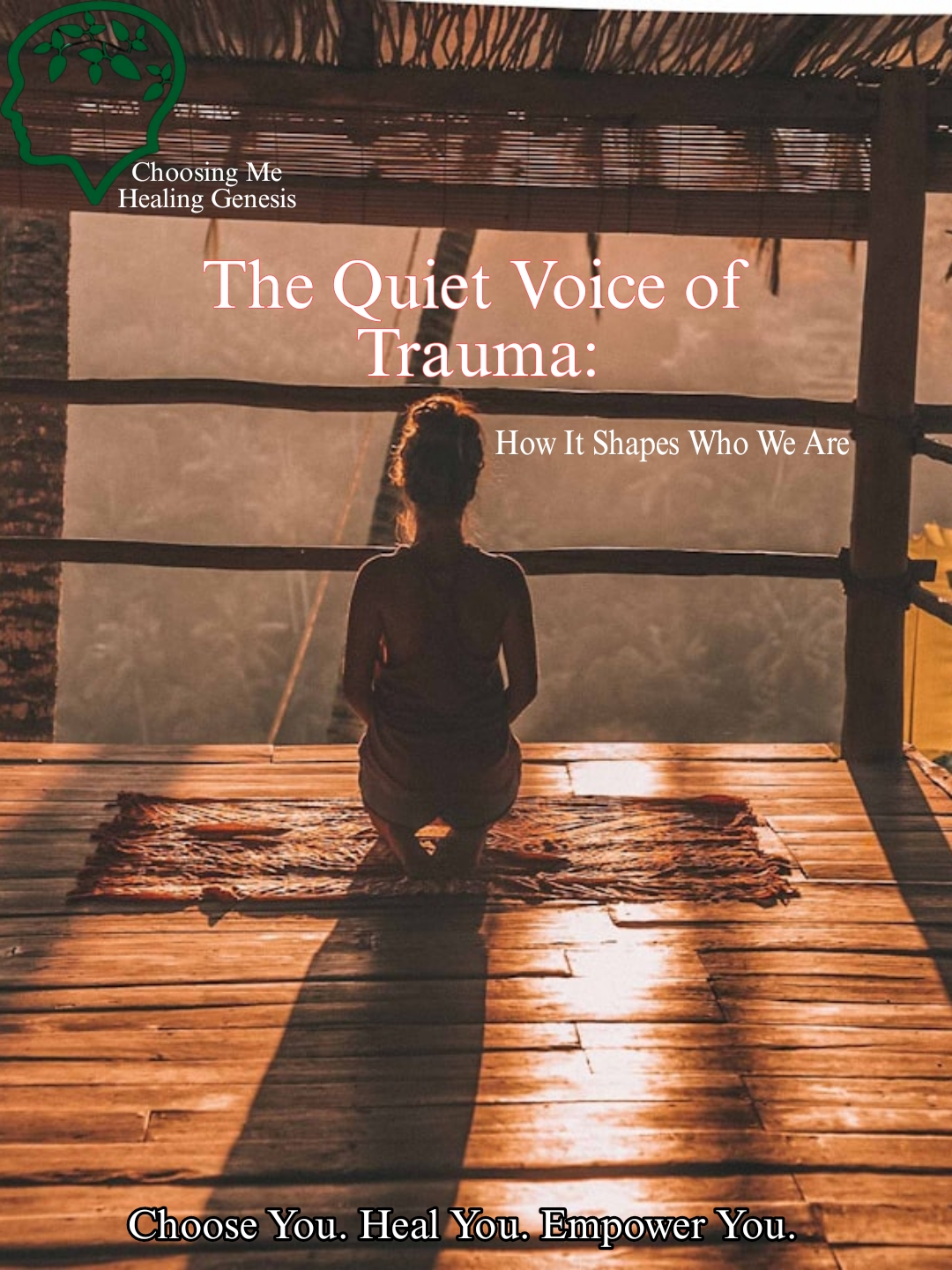The Quiet Voice of Trauma: How It Shapes Who We Are
When we think about trauma, we often picture something loud and overwhelming—a force that crashes into our lives and leaves us struggling to pick up the pieces. But what if trauma isn’t always so loud? What if it’s also a quiet voice that whispers in the background, shaping how we see ourselves and the world around us?
Trauma doesn’t just scream—it whispers too. And sometimes, those whispers are even more powerful because they’re always there, guiding our decisions, changing how we think, and shaping who we become, without us even realizing it.
The Whisper of Self-Doubt
One way this quiet voice works is by planting doubt in our minds. It makes us question our worth, our abilities, and whether we deserve good things in life. These doubts aren’t always obvious. They sneak in quietly, making us second-guess ourselves even when we should feel confident. We might not notice that this is trauma speaking, but it is—pushing us to play it small and safe.
The Quiet Fear
Trauma can also make us see the world through a lens of fear. This fear isn’t always a big, dramatic feeling. Sometimes, it’s just a quiet worry that makes us avoid new things, new people, or new opportunities because we’re scared of getting hurt. Over time, this fear can make our world smaller, keeping us stuck in a safe but limiting place.
The Numbness Shield
For some of us, the voice of trauma tells us that feeling nothing is better than feeling pain. It teaches us to build a shield of numbness, where we don’t let ourselves feel too much—whether it’s pain, love, or joy. This might protect us from getting hurt, but it also stops us from fully living. Life becomes dull, like we’re just going through the motions without really experiencing anything.
The Past on Repeat
One of the hardest parts about trauma is how it makes us feel like the past is still happening. The quiet voice of trauma echoes our old experiences, making us believe that we’re stuck in the same story, no matter how much we’ve changed. It convinces us that the hurt will keep coming back, even in new situations. This can make it really tough to move forward and feel free.
Finding Our True Voice
The first step to changing this is realizing that trauma doesn’t have to be the voice that guides us. We can start to notice when it’s speaking and choose to listen to our own voice instead. It’s not easy, and it takes time, but it’s how we begin to take back control and write our own story.
We don’t have to let trauma be the narrator of our lives. By recognizing its voice, we can start to tell a new story—one where we are in charge, and where our true voice can finally be heard.


0 Comments